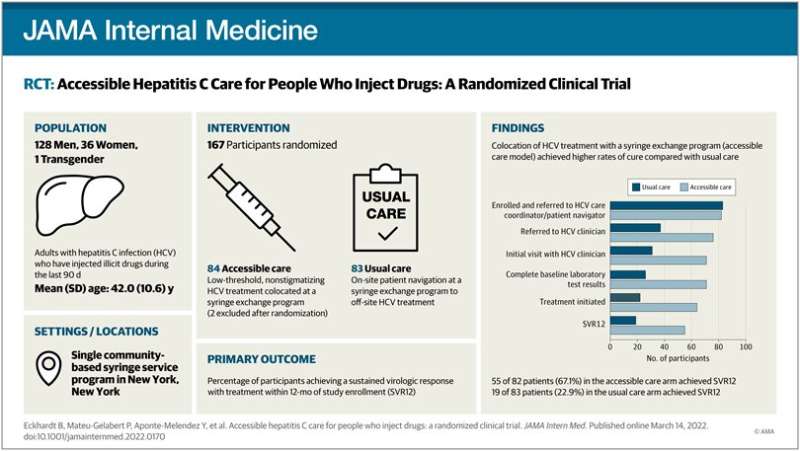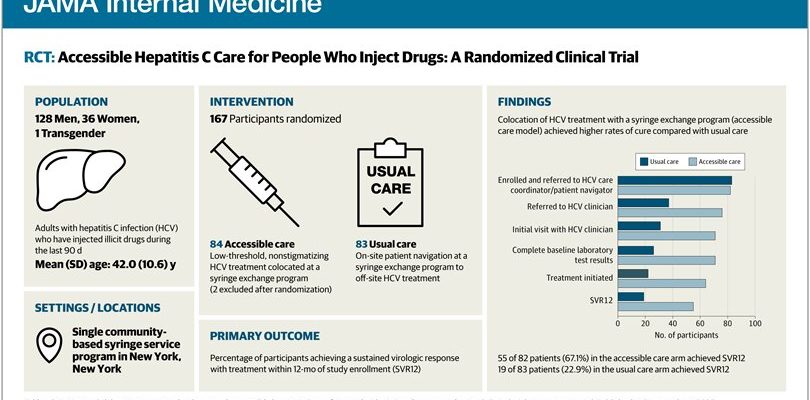
A study by CUNY SPH researchers, in close partnership with colleagues from Weill Cornell Medicine and NYU School of Medicine, suggests that treating people who inject drugs for hepatitis C infection using the accessible care model, which is characterized by low-threshold, nonstigmatizing care co-located in a syringe service program, is more effective than the usual care model, in which patients are referred to local clinicians.
To compare the accessible care model with usual care, Associate Professor Pedro Mateu-Gelabert and colleagues conducted a randomized clinical trial at the Lower East Side Harm Reduction Center, a syringe service program in Manhtattan, and included 167 participants who were hepatitis C–positive and had injected drugs during the prior 90 days.
Sixty-seven percent of participants who received accessible care treatment versus 23 percent of those who received usual care were cured of the hepatitis C virus, which was a significant difference.
The results suggest that the accessible care model provides a framework for developing treatment programs geared toward engaging, treating, and curing hepatitis C infection in people who inject drugs.
“This study proves people who inject drugs can successfully engage in Hepatitis C treatment when the services are provided in a non-stigmatizing manner, in a place where they feel welcome and adapted to their life circumstances,” says Pedro Mateu-Gelabert. “I believe ‘Accessible Care’ is a health care delivery model that could be successfully replicated in addressing other pressing health care needs of people who use drugs.”
Source: Read Full Article
